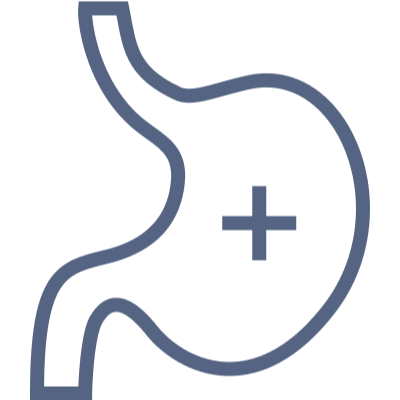Collection Method
CI05.34.01
Kit Requirements
Stool Test Kit
Turn Around Time
3-5 Business Days Turnaround times are estimates
Description
The calprotectin stool test that NutriPATH offers is used to detect inflammation in the intestines. Intestinal inflammation can be associated with bacterial infections and in people with inflammatory bowel disease (IBD). The calprotectin test may be used to distinguish between IBD and non-inflammatory disorders and to monitor IBD disease activity.
Testing for faecal calprotectin is a useful screening tool for identifying patients who are most likely to have an endoscopy for suspected inflammatory bowel disease.
The main diseases that cause an increased excretion of faecal calprotectin are infectious colitis, Crohn’s disease, ulcerative colitis and neoplasms (cancer). Essentially, an elevated calprotectin indicates that inflammation is likely present in the gastrointestinal tract.
The calprotectin stool test that NutriPATH offers is used to detect inflammation in the intestines. Intestinal inflammation can be associated with bacterial infections and in people with inflammatory bowel disease (IBD). The calprotectin test may be used to distinguish between IBD and non-inflammatory disorders and to monitor IBD disease activity.
Calprotectin can be ordered as a single marker or in alliance with a CDSA panel that includes certain GIT markers.
Gaya DR, Mackenzie JF (2002). Faecal calprotectin: a bright future for assessing disease activity in Crohn‘s disease. Q J Med 95: 557-558 2 Roseth AG et al (2004).
Normalization of faecal calprotectin:a predictor of mucosal healing in patients with inflammatory bowel disease. Scand J Gastroenterol 39: 1017-1020
Analytes
- Calprotectin- Inflammation marker (IBS vs IBD)
Test Method
Common Conditions
 Gastrointestinal and Digestive Health
Gastrointestinal and Digestive Health- Abdominal cramps or pain
- Bloating
- Bloody or watery diarrhoea
- Rectal bleeding
 Other Health Conditions
Other Health Conditions- Diarrhoea
- Fever
- Inflammatory Bowel Disease – Crohn’s, Ulcerative colitis
- Irritable Bowel Syndrome
 Energy and Fatigue
Energy and Fatigue- Weakness
 Nutritional and Dietary Symptoms
Nutritional and Dietary Symptoms- Weight loss
Notice To Patients
NutriPATH practices in the usual practitioner-referral system for pathology laboratories. Patients are highly recommended to seek the supervision and guidance of a qualified healthcare practitioner for the interpretation of any lab results and associated information. NutriPATH can offer assistance in locating a suitable practitioner.
How it works
Step 1
Order test
Your referring practitioner will place this order via their online portal.

Step 2
Collect Samples
A test kit will be dispatched to you and you can conveniently collect your sample in the comfort of your home.

Step 3
Return Samples
Return samples for analysis via the provided courier packaging.

Patient resources
Our highly skilled and qualified team have created a service where patients can easily gain access to a wide range of pathology testing options.
Practitioner resources
As a leader in the industry, practitioners are able to trust in our ability to provide them with the technology they need to adequately test their clients and patients.









